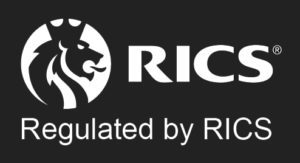What you need to know about Green Leases

A Green Lease is a commercial lease, containing additional clauses that the building must be occupied, operated and managed in an environmentally sustainable manner. The concept of a Green Lease was first developed in Australia where its use has been mandatory since 2006 in all government-owned and occupied buildings. In France, Green Lease legislation has been mandatory since 2013. Globally, 42% of investors have Green Lease clauses in place with an additional 37% looking to adopt them by 2025. On the occupational side, 34% of occupiers are currently committed to Green Leases.
Green Lease clauses can range from ‘light green’ to ‘dark green’ depending on the nature of the property, and energy performance certifications. The essential elements of a Green Lease include:
- Agreement by Owner and Occupier not to do anything which would adversely affect the Building Energy Rating of the building. Any works to be carried out including fit-outs are carried out to a measurable standard such as BREEAM or LEED.
- Separate digital metering for utilities and central services so that Owner and Occupier can measure all outputs and agree to share respective data.
- Participation in a building management committee as a means of education and communication between the various Occupiers in the building with the Owner on the management of the building.
- Collaborative approach in relation to disputes on green issues and that those be dealt with by way of mediation.
For both Owners and Occupiers, a Green Lease encourages a relationship of collaboration and meets corporate social responsibility objectives.
What are the benefits of a Green Lease?
For the Owner
- Property investment is maintained in accordance with environmentally sustainable design.
- The building is more attractive to both Occupiers and Investors.
- Costs of maintaining the asset are minimised.
- With increased awareness and focus on sustainability by investors and occupiers, better sustainability credentials may impact a building’s marketability and value. Improved environmental credentials will attract the increasing number of Occupiers that focus on meeting their and their stakeholders’ ESG requirements. This creates a competitive market advantage over alternative properties which do not meet the same standards.
- Green Leases will assist Owners to meet existing and future environmental regulations.
For the Occupier
- Reduced operating costs in the occupation of an energy-efficient building for things such as electricity, HVAC and water.
- Owners may offer incentives to Occupiers who exceed energy efficiency targets.
- Studies have shown links between environmentally sustainable workplaces and increased employee productivity and satisfaction.
- Occupying a green building can form part of a Occupier’s ESG requirements, which in turn can appeal to employees and help an Occupier to recruit and retain the best talent. For retail Occupiers, green stores can appeal to the environmentally conscious consumer
Green leasing provides an effective framework for both Owners and Occupiers to work together to achieve a common objective and comply with future legislative requirements. A sustainable building with lower running costs is more marketable for Owners and more cost-effective for Occupiers to occupy. Given the evolving nature of Green Leases, it is prudent to take legal and professional advice before entering such leases to ensure that the provisions are suitable for your organisation.
If you want to discuss the sustainability dynamics of the Irish Commercial property market further contact the Consultancy Team @ Bannon.
Author: Cillian O’Reilly, Surveyor, Sustainability Manager, Bannon
Date: 11th April 2023





